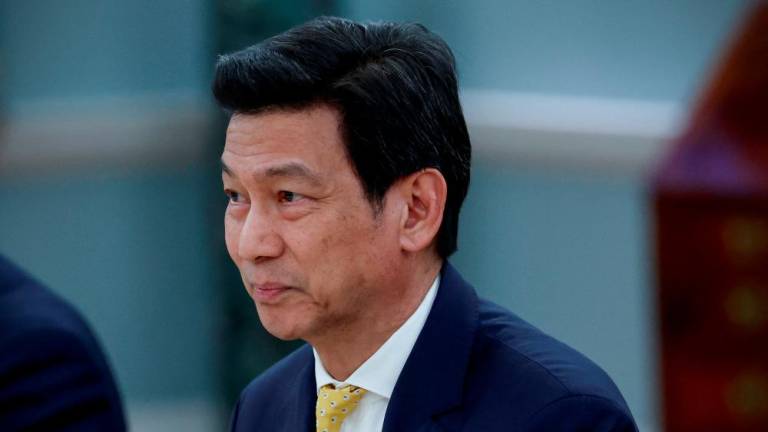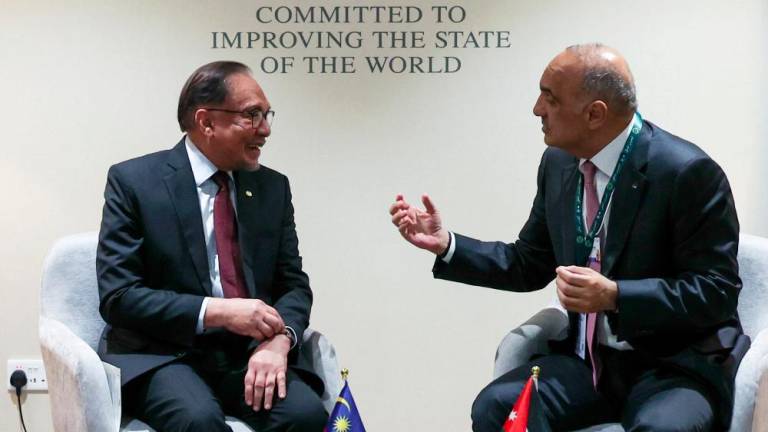ALL around us, we are surrounded by people and happenings that zap us of energy to the extent that we drag ourselves to get out of bed every morning, hoping that the day will be better than the day before. There is bad news just about everywhere, many with disastrous consequences.
Amongst them are people who always ooze with energy, remarkable liveliness and positivity that are both baffling and welcoming at the same time.
I suppose mindset plays an all important role and makes a whole lot of difference, in this context.
What is the one essential ingredient that can bestow upon us the professional distinction, good health, familial comfort and inner joy?
The one thing that money cannot buy, and it is not the powerful connections and neither is it necessarily high IQ.
It is mindset or attitude, if you like. Your mindset is how you see the world around you and your attitude is how you interact with the world according to how you see things collectively. Both of these will decide whether you will leap the extra mile or back peddle to call it quits, and whimper about it for life.
The biggest key to accomplishments, happiness and fulfilment is mastery of our own emotions. The highly regarded saying, “Attitude leads to attitude”, is both descriptive and prescriptive.
More than ever before, work places have become a challenge with dire changes needed to keep afloat or risk being wiped out once and for all. We see business shuttering and new ones popping out overnight.
Everything about our lives has changed, perhaps for the better. The need for digitalisation has been propagated with much intensity in the past decade but it is the pandemic that has catapulted us into the digital era more than anything else.
Coming back to the mindset, those who are experts in rationalising their sentiments are whisked into success in their field of work, despite the overwhelming odds.
This is because such people have the ability to choose their thoughts and hence, are able to fill themselves with faith and inspiration, and apply themselves to their tasks with joy. Such people are resilient and determined, even in times of extreme adversity.
In contrast, we have those who keep getting entangled in the cobwebs of their thoughts. They waste precious time and energy revisiting sentiments of anxiety, gloom and resentment, not knowing that such negative feeling robs them of health and happiness, and they earn the wrath of family, friends and colleagues.
Such people are called energy-vampires, and you would know if you are in contact with one. Therefore, how do we develop a favourable mindset? Simply put, the attitudes we develop habitually within ourselves become our mindsets.
They are our customary ways of thinking, which become internalised as part of our personality. They can be compared to physical habits we create by repeating physical behaviours until they begin to happen automatically.
Similarly, mindsets are habits we establish internally by practising particular attitudes repetitively until they come naturally to us. These mindsets can either work in our favour by flooding our consciousness with positivity or against us by plunging our mind into negativity.
Having said that, it is fortunate that with training and consciously adopting change, harmful mindsets can be replaced by productive ones, without any rudiments.
All we need is to train our mind and intellect to unlock the immense potential towards positivity.
In moving towards a world where humanity needs to outscore all other differences, we must rid ourselves of the disease of thinking in terms of “I” or me, petty jealousy and fault-finding nature and instead work towards a greater life goal.
The right attitudes only help us not only in our material pursuits but also bestow upon us the ability to realise and reap the benefits of spirituality. We learn to become better persons by learning to harbour good thoughts, as they say, we are all we think all day.
The pandemic has affected each of us in a great many ways but the school-going kids are in deep turmoil, unable to cope with online classes and examinations.
Meanwhile, countries still think examinations are the best yardstick to measure a child’s excellence.
We have heard the Sijil Pelajaran Malaysia students bemoan their lack of readiness to face the examinations end of this year and while the government may be working on some alternative plans for these kids, if parents can help their children by educating them on the importance of building coping mechanisms through building the right mindset, it will make a huge difference.











